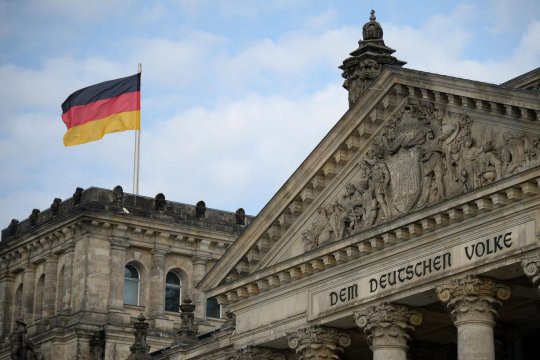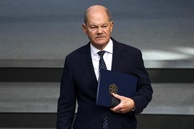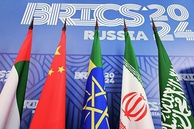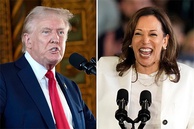In a recent report, Reuters cited a "German government source" as saying that Berlin is once again putting on hold an increase in its defense spending to 2 percent of GDP. [i] After February 2022, the German authorities never tired of promising to ramp up the country’s military outlays to bring them up to date with NATO standards in keeping with long-standing agreements within the Western defense alliance. The target figure of 2 percent of GDP was expected to be achieved within five years, give or take. At the end of February 2022, Chancellor Scholz even promised to "invest more than 2 percent in defense year after year."
After that, a special 100 billion euro fund was established to dramatically increase the capabilities of the German armed forces. Now, according to Reuters, the situation looks uncertain again. Will Germany maintain an increased level of military spending once the special fund runs dry? By the way, 100 billion euros is virtually what the German state spends on defense within two years. At the same time, according to British media reports, by the end of spring 2023, less than 15 percent of the money in the special fund had been spent, or no money had been spent at all.
Meanwhile, the promise of a sharp increase in military spending was one of the most controversial manifestations of the fundamental changes in Germany’s foreign policy that the government of Olaf Scholz announced last year. When speaking in the Bundestag on February 27, 2022, the chancellor proclaimed the "change of eras," Zeitenwende, in European and world affairs. He also tried to convince everyone that Berlin was ready to respond "in the most decisive way" to new challenges to German strategic interests and long-term plans for the future, arguing that for the German people the start of an all-stops-out conflict in Ukraine became the most dramatic moment of rethinking reality.
As time wore on, however, political declarations somehow faded facing the realities of geopolitics and economics. It's no secret that Germany's economic successes over the past 20 years have to a large extent been based on stable supplies of relatively cheap Russian energy resources, as well as on growing exports of German industrial products to the Russian market. Another important factor that allowed Berlin to maintain and strengthen its status of the European Union’s economic powerhouse was the expanding trade with China.
At the same time, Scholz's longtime predecessor, Angela Merkel, either underestimated or preferred to play down the threat that Washington’s Ukrainian policy posed to Russian-German relations, although a personal meeting between Biden and Merkel in the summer of 2021, showed that Berlin's refusal to bring its relations with Moscow in line with Washington’s would result in a significant toughening of the position of the White House. Finally, when in the fall of last year, German voters supported Scholz, formerly the finance minister in Merkel's government, this actually showed their desire for stability and predictability. The main, if not only, drastic moves they expected from the new chancellor were in the realm of economy.
By the end of 2022, the escalation of the conflict in Ukraine “knocked out” from under the feet of the German economy one of the two key pillars – energy and economic cooperation with Russia. Energy-intensive industries have been hit the hardest, leading to the country’s partial de-industrialization and the transfer of part of the production abroad, including to the United States. Part of the industrial capacity has either ground to a halt, or kept afloat by government subsidies. Meanwhile, taking advantage of the “bloc discipline” that has rapidly returned to the agenda, Germany’s nominal NATO allies are seeking a radical reduction in Berlin’s economic ties with China.
Looking at the situation as a whole, the power imbalance in Europe, which historically provoked most of the conflicts on the continent, has not gone anywhere. The EU and NATO members are prodding Berlin to strengthen the military component of its foreign policy, while simultaneously expressing concern about the prospects of "over-strengthening" the Germans. The US is at best trying to steer Germany down a path that suits its own interests. Donald Trump, when still in the White House, openly disparaged Germany. Today, despite all the harassment by the current administration, he tops the list of presidential hopefuls again, at least among the Republicans.
This being said, Berlin is apparently aware of its inability to single-handedly play a leading role not only in world affairs, but also in European ones. Therefore, the Germans prioritize a further integration of the European Union, including in defense. The question is, who will pay? The Germans again, as was in the case of overcoming the debt crisis of the early 2010s and the coronavirus pandemic? Another issue is the pressing plans for an accelerated modernization of the armed forces, which are now being considered by most of Germany's European allies. The only way to make it happen quickly is to increase the import of arms, primarily from the United States. This is exactly what the Germans prefer to do. But what about the “strengthening of European unity”? Right now, the countries of the continent are willy-nilly "rallying" around Washington within the framework of NATO, and the United States clearly encourages such a line, which it sees as the best alternative to any unification of Europeans without the participation of an overseas patron.
Berlin’s doubts and hesitations manifested themselves already during the opening months of the Ukrainian escalation, when literally everyone in the West was criticizing the Germans for their foot-dragging on providing military assistance to Kyiv. However, in the second half of last year, Scholz went on record again reiterating Berlin's continued focus on cementing its leading role on the European continent by strengthening its geopolitical potential. Commentators interpreted Berlin’s rhetoric as a bid for the role of strategic leader, if not new hegemon, of the European Union.
However, at the beginning of 2023, the consent to send tanks to Kyiv, which seemed to be fully in line with the paradigm of a “new German determination,” invited harsh criticism from both the right and the left, not only in the ranks of the opposition, but even among some members of Scholz’s SPD. The population of the eastern federal states, where the parties of the ruling coalition are rapidly losing support, primarily in favor of the Alternative for Germany, spoke out categorically against it. As a result, instead of demonstrating "determination," German politicians and experts plunged into discussions about the right of the federal government to make such important decisions when so many people do not support them - a most painful issue for the political culture of modern Germany.
Meanwhile, Scholz, who had made a U-turn on the supply of German heavy weapons under strong outside pressure, just as quickly lost the image of both a “resolute” and “cautious” realist, who, more or less convincingly, had been able to dovetail the agenda of protecting the interests of Germany and the Western community as a whole. Now, he emerged as a "soft-bodied" chancellor, unable to resist foreign diplomatic pressure. Then the economic problems caused by geopolitical circumstances emerging against the will of Berlin made themselves felt. As a result, Scholz is now facing the threat of losing his reputation as a skilled economist.
It turned out that the German industry is very vulnerable to foreign competition and geopolitical divisions. The restructuring of the country's energy sector will be much more difficult and costly, and the German workforce is rapidly aging and shrinking. To make matters worse, it looks like the German state is ill-equipped to deal with these problems.
According to the British The Economist, the US and Europe are seeking to reshape their supply chains to become less dependent on any single non-Western supplier, above all China. However, Germany has to pay a high price for the potential benefits of such a policy as the country has been forced into a global race of billions in subsidies designed to preserve industrial production and attract companies from the most advanced sectors. At the same time, Berlin is much more dependent on economies that are “hostile to the West” than its main competitors in the US and Europe. An 2021 IMF paper shows that Germany will suffer more than any other OECD country if trade in high-tech goods between club members and China is severely curtailed.
Besides, with the share of its working-age population comparable to the United States, the average age in Germany is 45 years, while in other countries along the shores of the Atlantic Ocean it is 39. German companies already have problems hiring staff. According to the German Institute for Employment Research, without immigration, by 2035, the labor market could lose up to 7 million out of 45 million workers. Emigration from the Central and East European countries may not help, as many economies in the east of Europe are experiencing a certain recovery and find themselves short of workers. Also, since advanced high-tech industries in Germany are not developed enough, the country loses in competition in such new economic sectors as electric vehicles, digital technologies and artificial intelligence, not only to China, but also to the United States.
In the energy sector, the original plan, developed in the 2010s, called for the replacement of nuclear energy with renewable sources and cheap Russian gas. Neither of these is possible now. Russian gas will not be supplied to Germany in the near future. And although Germany is one of the most energy efficient countries in Europe, its large industrial sector consumes a huge amount of energy. To further reduce their dependence on fossil fuels, the Germans will have to make costly compromises in every sense of the word.
Ultimately, according to IMF forecasts, in 2019-2028 the German economy will grow by a mere 8 percent. Over the same period, France is expected to grow by 10 percent, and America - by 17 percent. To overcome these three challenges - geopolitics, climate change and demography - an effective, digitally infused state is needed. Meanwhile, German institutions and administration are "choking on their own rules and procedures." For example, in Germany, any defense contract worth more than 25 euros must be approved by the budget committee of the Bundestag, which leads to significant delays. After Scholz announced the creation of the military special fund mentioned above in February 2022, lawmakers approved the first spending package only in December.
The gulf between the claims of Germany, formally, still the leading dominant economy of the European Union, and its modest international capabilities, is widening right before our eyes. The Scholz government faced an intractable dilemma between a further fall in voter support amid the deteriorating socio-economic situation, and growing doubts among the country’s nominal allies about its ability to continue to play one of the leading roles in the Western camp.
By the onset of last year, as geopolitical tensions in the east of Europe increased, European commentators described the position of official Berlin as "the main unknown quantity" among the countries of the West. It seems that German foreign policy is an unknown quantity again, and this time - contrary to what its creators intended.
The views of the author are his own and may differ from the position of the Editorial Board.
---------------------------------------------------------------------------
[i] https://www.reuters.com/world/europe/germany-walks-back-plan-meet-nato-spending-target-annual-basis-2023-08-16/
read more in our Telegram-channel https://t.me/The_International_Affairs

 12:21 29.08.2023 •
12:21 29.08.2023 •



























